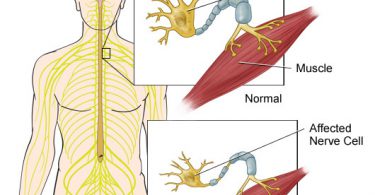
Abstract: Dysmenorrhoea means painful menstruation. It is one of the most common gynaecological problems.It is cases of painful menstruation of sufficient magnitude so as to incapacitate day to day activities. There are many homeopathic remedies that are useful in this condition.
Keywords: Primary dysmenorrhoea, Secondary dysmenorrhoea, Homoeopathic Medicine
Introduction:
It is cases of painful menstruation of sufficient magnitude so as to incapacitate day to day activities.Painful menstruation is referred to as dysmenorrhoea.
Two types of Dysmenorrhoea:
- Spasmodic dysmenorrhoea
- Congestive dysmenorrhoea
Spasmodic dysmenorrhoea- colicky pain that starts with or just before menstruation and last throughout the period of bleeding.
Congestive dysmenorrhoea- starts a few days prior to the onset of bleeding and intensifies with menstruation and the pain is constant.
Dysmenorrhoea is also also classified as :
- Primary dysmenorrhoea
- Secondary dysmenorrhoea
Primary dysmenorrhoea begins a few years after menarche when ovulatory cycles set in. It is common in young nulliparous women and disappears after a few years.
Clinical features:
The pain begins a few hours before or just with the onset of menstruation.
The severity of pain usually lasts for few hours, may extend to 24 hours but seldom persists beyond 48 hours. The pain is spasmodic and confined to lower abdomen; may radiate to the back and medial aspect of thighs.
Systemic discomforts like nausea, vomiting, fatigue, diarrhoea, headache, tachycardia may be associated. May be accompanied by vasomotor changes causing pallor, cold sweats and occasional fainting. Rarely, syncope and collapse in severe cases may be associated. Abdominal or pelvic examination does not reveal any abnormal findings. For detection of any pelvic abnormalities, ultrasound is very use
Secondary dysmerrhoea starts later and is due to pelvic pathology. It is mostly congestive in nature. Spasmodic secondary dysmenorrhoea is usually due to pathology in the uterine cavity such as IUCD, Polyp or submucous myoma.
The pain is dull, situated in the back and in front without any radiation. It usually appears 3-5 days prior to the period and relieves with the onset of bleeding. There is no systemic discomfort unlike primary dysmenorrhea.
Clinical differentiating features between primary and secondary dysmenorrhoea :
| Primary | Secondary |
| No identifiable pelvic pathology | Secondary to pelvic pathology |
| Mostly in adolescents | Elderly/parous women |
| Confined to ovulatory | Pain starts 7-10 days before the onset of menstruation |
| Starts with the onset or just before the menses | No systemic discomfort |
| Intermenstrual period not completely free of pain |
Clinical evaluation of dysmenorrhoea:
History:
- Type of pain- Spasmodic/congestive
- Location of pain
- Age of onset
- Abnormal uterine bleeding
- Dyspareunia
- Gastrointestinal/urological symptoms
- History of pelvic inflammatory disease/vaginal surgery
Physical examination:
- Perabdominal examination
Mass
Tenderness
- Speculum examination
Scarred cervix
Pinhole os
- Pelvic examination
Uterine size
Adnexal mass
Tenderness
- Per rectal examination
Rectovaginal nodules
Tenderness
Homoeopathic medicine of Dysmenorrhea:
- Cimicifuga
The characteristic indication for this remedy is dysmenorrhoea is pain flying across the pelvic region from side to side. Headache preceding menses, during menses sharp pain acreoss abdomen, has to double up, labour like pains
- Caulophyllum
Spasmodic in character, pains are bearing down in character.it produces a continued spasm of the uterus simulating first stage of labour; the flow is mostly normal in quantity.it is a useful remedy in these spasmodic cases if given between periods.hysterical convulsions with dysmenorrhoea, pains shoot to various parts of the body.
- Belladonna
The congestive forms of dysmenorrhoea. There is pain preceding the flow and a sensation of heaviness as if everything would protrude from the vulva, relieved by sitting up straight. The pains come on suddenly and cease suddenly; the flow is offensive and clotted. The dysmenorrhoea is intensely painful, the vagina is hot and dry and the pains are cutting through the pelvis in a horizontal direction .
- Viburnum opulus
The remedy produces a sudden pain in the region of the uterus before menstruation and much backache during menses. In neuralgic and spasmodic dysmenorrhoea it has achieved a considerable reputation .spasmodic pain . Bearing down, aching in sacral and pubic region, excruciating, cramp, colicky pains in hypogastrium, much nervousness and occasional shooting pains in the ovaries.
- Xanthoxylum
This remedy has about only one use in homoeopathic medicine, and that is in dysmenorrhoea and uterine pains.
It is useful where the pains are agonizing , burning, extending down thighs along the crural nerves with a feeling as if the limbs were paralyzed, the menstruation is usually profuse and with it agonizing bearing down pains.
- Mangnesia phosphoric
The pains calling for it are neuralgic and crampy preceding the flow, and the great indication for the use of this remedy is the relief from warmth and the aggravation from motion.
Uterine engorgements with the characteristic crampy pains will indicate the remedy.
It has also been used successfully in membraneous dysmenorrhoea.
- Pulsatilla
Dysmenorrhoea calls for pulsatilla when the menses are dark in colour and delayed ; the flow will be fitful and the more severe the pains are the more chilly the patient will get.
- Cocculus
A most useful remedy in dysmenorrhoea and scanty, irregular menstruation. Uterine cramps. Profuse discharge of clotted blood and severe headache accompanied by nausea; a heaving up and down of the stomach as in seasickness. It suites cases on the borderland between the neuralgic and congestive types of dysmenorrhoea. Uterine cramps with suppressed irregular menstruation and a sero-purulent bloody discharge.
References:
- DC Dutta’s Textbook of Gynecology
- Practical Homoeopathic Therapeutics – W.A. Dewey
- Essentials of Gynaecology- Lakshmi Seshadri
About Author:
Dr.Medha.V BHMS, M.D(Hom)
Assistant Professor
Department of Community Medicine
Yenepoya Homoepathic Medical College& Hospital
Yenepoya (Deemed to be University), Mangaluru





